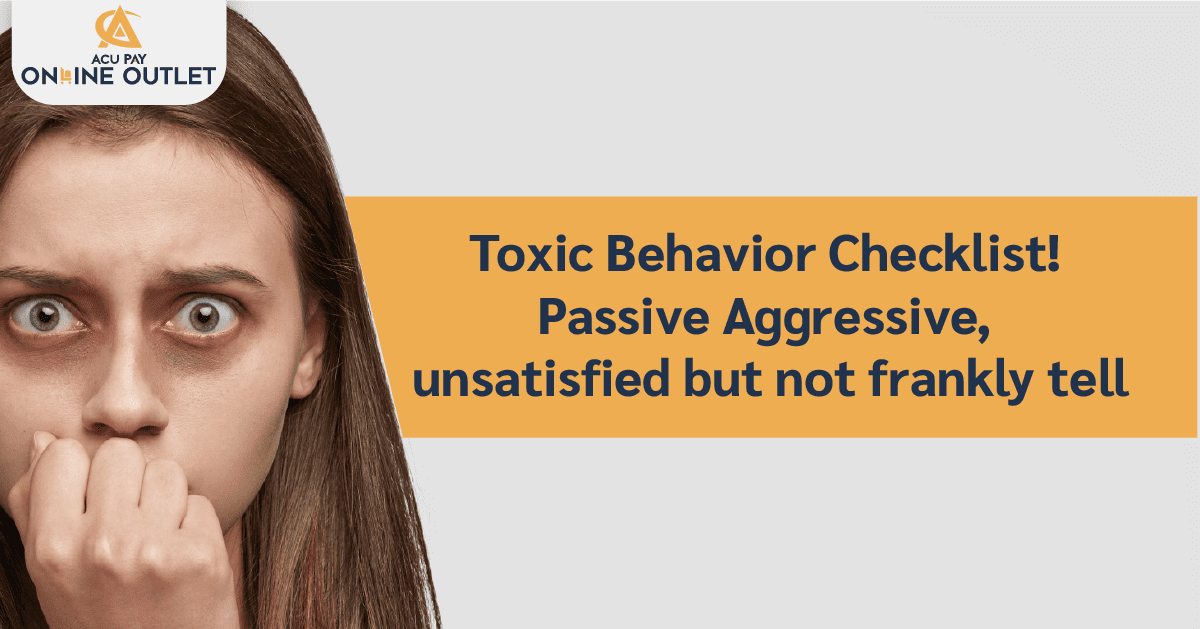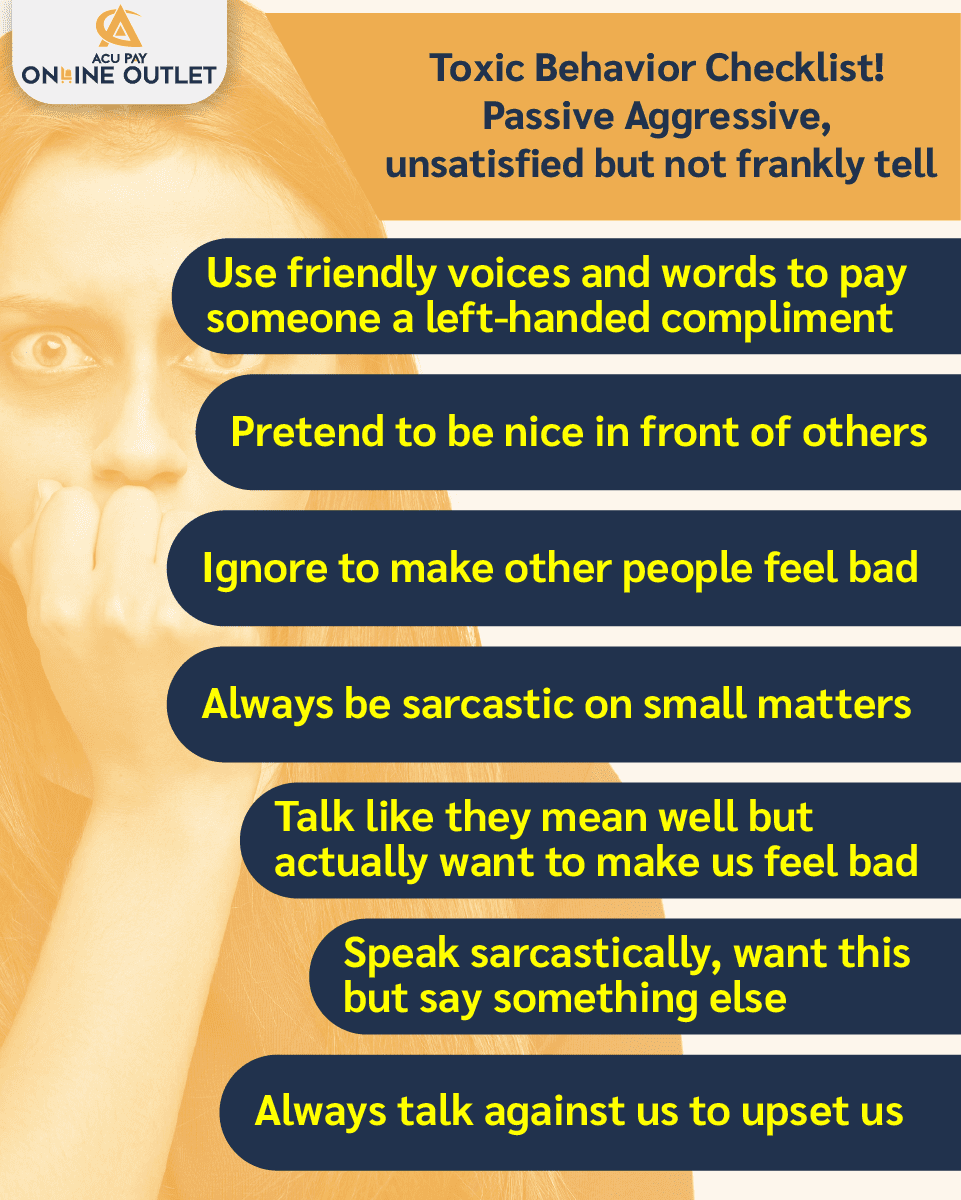

Passive-aggressive behavior is indirect bad behavior when these people are upset, instead of being frank that they are angry, disagreeing, or saying that we’re wrong, they choose to express their feelings in other ways such as using words, or actions to irritate and upset the other party.
Passive-active behavior can occur anywhere, whether at work, at home, at school, in the community, or with loved ones. People who show this behavior believe that if they are angry, it will have a bad effect on them and it is not acceptable. Thus, they choose to express themselves with a smile that hides resentment and anger instead.

Let’s look at the behavior of ourselves or people around us and see if we’ve ever done it.
Sometimes words or messages can be superficially seen as compliments or caring, but if you pay attention to them carefully, they are often hidden with some kind of satire, sarcasm, or prejudice without the listener knowing it.
For example, a few words that we didn’t know they were pretending to compliment us with Kyoto’s euphemism that even the Japanese themselves could not interpret, for example:
If a Kyoto person says, “Your watch is beautiful,” that means “We are talking for too long. I’m tired. Go back.” in a polite way. If a Kyoto person “gives a gum” to you when you are talking, it doesn’t mean they are kind and want to share snacks with you. In fact, it means that “you should stop talking”
Although it sounds good to be able to upset others successfully, many people who are hurt by passive-aggressive methods can often experience anxiety and worry about what they show means they hate us or are unsatisfied with us or not.
Take a deep breath, try to manage your emotions by identifying the emotions that are going on, and realize that it’s common for us to be upset, sorrow, and sad because we’re all human beings.
Speak honestly, without scolding, and talk about the consequences of the words to the other party. For example, “I feel bad about what you just said. It makes me feel anxious when I’m around you.”
If the other party still has the same behavior, you should make it clear that if they continue to do so, you will not talk and walk away immediately. So the other party will know that they will not get whatever they want because no one can always tolerate their behavior, every action should be limited, and it will also protect your mental health.
The main cause of passive-aggressive behavior is fear of confrontation, fear of rejection, and fear of unacceptance in society. Passive-aggressive people therefore invented other ways to express dissatisfaction in various situations, such as the more powerful side’s response.
However, in the end, if we have a society that can talk and criticize directly, passive-aggressive behavior may gradually decrease. Choose to face conflict and reduce the toxic atmosphere in every society we live in.